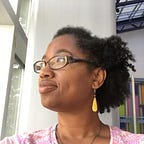Reflecting on BTS’s 2021 UNGA address: A call to hope and a reminder to listen
BTS’s 2021 address to the United Nations General Assembly during the Sustainable Development Goals (SDGs) Moment offered both a reflection of the grief felt by many as a result of the COVID-19 pandemic and encouragement for hope. I felt this message was an invitation, a call to reflect on my responsibilities as an educator and a parent, and, most importantly, a reminder to listen.
BTS has spoken at the UN three times. First, they came to support the 2018 UNICEF launch of Generation Unlimited 2018. In 2020 they offered a video message of hope amid the COVID-19 crisis. However, their visit to the 76th United Nations General Assembly session marked their first time delivering an address with their special appointment from South Korean President Moon Jae-in as “special presidential envoy for future generations and culture.” If today was an indicator of what they plan to do in this role, they will undoubtedly be transformative representatives for change and community-building efforts.
Their address was conversational in its delivery. Rather than go around and have each person deliver an individual message, they spoke together. Each member (RM, Jin, SUGA, j-hope, Jimin, V, Jung Kook) took turns sharing their feelings about the pandemic and reflecting on what they learned from listening to those who responded to their #YouthToday #YouthStories invitation. In essence, BTS was in conversation not only with one another but with these stories. In my field, cultural rhetorics, we call this practice constellating stories. It is a way to show relationships between people, places, events, communities, and ideas. This method of delivery was a poignant example of how we are all connected. The remarks were timely and poignant, and as an educator and parent, I felt that there were many takeaways from this speech.
First, they asked us to shift the narrative of the story told about youth during COVID. While some may call them the “lost generation,” BTS used this as a moment to rename them the “welcome generation.” BTS encouraged us to see the grief alongside the perseverance that many young people have expressed using stories and images collected from their #YouthStories query. In asking us to change the way we describe youth, they also ask us to open ourselves to discovering other stories and experiences that we might miss if we are only following the framing of a “lost generation.” Sharing these experiences also served as a reminder that many young people are already thinking and working to find ways to advocate for global issues and concerns. This made me ask: What do we gain in perspective, story, and knowledge if we shift to notice how young people have welcomed, adapted, and even encouraged change during this time? How does that inform or even ask us to adjust our praxis more readily?
Second, I appreciated how the members reflected on what it has meant to live during the pandemic: the isolation, regret, and grief, along with the responses of youth who felt similarly. This naming and sharing of stories amounted to an outright acknowledgment of the sorrow and grief. While many of us have felt this sorrow and may continue to feel it, it is important to publicly recognize the collective grief and stress. For many of us, the messages we’ve received have been that we must carry on, work has to continue, we have to push through. However, there’s something to be said for a pause, an acknowledgment of the sadness because, through that pause, we might be able to find a transition to joy. As a teacher and parent, this made me consider my listening and reflective practices. How might we listen with more critical awareness to the fears and concerns young people experience and express? How are our classroom practices allowing for a recognition of the fear and anxiety our students hold? How are we responding?
Finally, while BTS spoke of sadness, they also reminded us that there is still joy amid grief and chaos. People have found ways-both big and small- to bring joy into their lives and the lives of others. Their presentation of a recorded performance of their song Permission to Dance capped off the speech and again demonstrated how BTS has consistently shown a willingness to narrate and reflect on the complexities of life. Yes, there is sadness, but there is a strength in knowing that we don’t need permission to feel the range of our feelings, and we don’t need permission to express our joy. For me, this was a reminder to make room for joy and remember that it comes in all forms: dance, song, art, writing, story, and more. As an educator, how am I making space for these expressions and reflections in my classes? How might I encourage joy in the process of knowledge-making?
Today’s remarks responded to this specific moment. They also felt like a continuation of BTS’s messages and ethos. Their praxis has remained consistent as they encourage us to reflect on our value in the world, acknowledge that change happens through big and small actions, and offer reminders that growth and change are possible through reflection. BTS began as a group that wanted to make music that could support young people, a conduit for their voices and experiences, and they have more than succeeded in that mission. They continue to demonstrate how powerful it can be when we recognize that we are individuals with stories and experiences that matter. They have inspired me to listen and reflect on my presence and actions. My takeaway from today is that our stories and experiences are all our own, but they are even more powerful when they come together.
